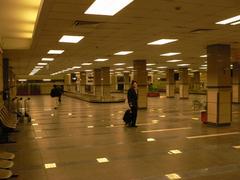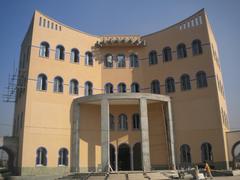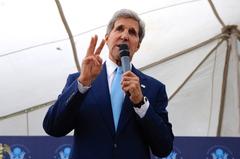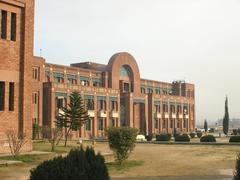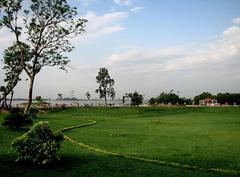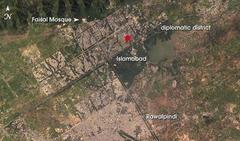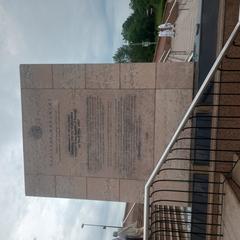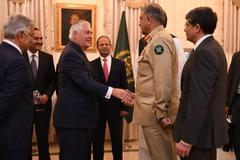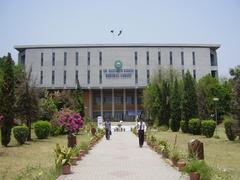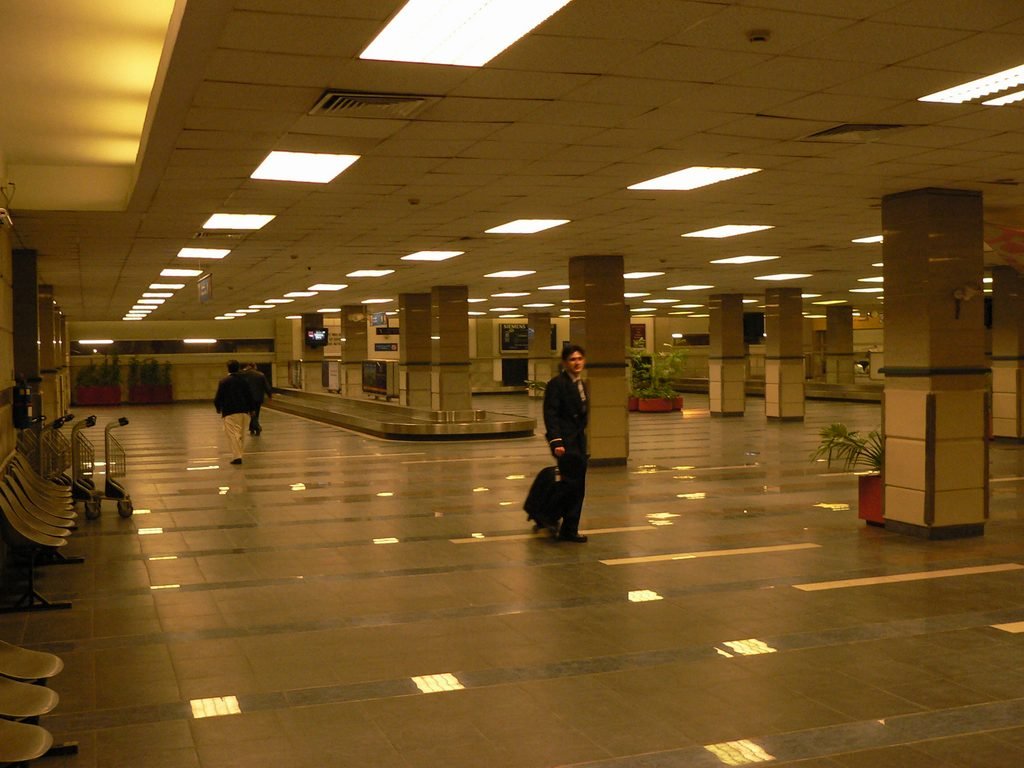
Benazir Bhutto International Airport Visiting Hours, Tickets, and Travel Guide: Islamabad Historical Sites
Date: 14/06/2025
Introduction
Benazir Bhutto International Airport (BBIA) stands as a landmark in Pakistan’s aviation history, having served as the principal air gateway for Islamabad and Rawalpindi for decades. Established originally as a dual-purpose civil and military airfield in Chaklala, Rawalpindi, BBIA was named after Pakistan’s first female Prime Minister, Benazir Bhutto, symbolizing national progress and modernity. The airport played a crucial role in facilitating both domestic and international travel, until its commercial operations were relocated to the newly built Islamabad International Airport in 2018 due to surging passenger demand and infrastructural limitations.
Today, BBIA is primarily a military and governmental facility with limited public access. Its legacy, however, remains significant for aviation enthusiasts and those interested in the region’s history. This detailed guide explores the historical development of BBIA, its transition to the new Islamabad International Airport, practical travel information, amenities, transportation options, and nearby cultural attractions. You’ll also find answers to common traveler questions, essential resources, and tips for making the most of your visit to Islamabad.
For comprehensive historical and operational details, refer to the Pakistan Civil Aviation Authority (PCAA Official Website), the Pakistan Tourism Development Corporation (Pakistan Tourism Development Corporation), and further analysis at Airport Technology.
Table of Contents
- Introduction
- Historical Development of Benazir Bhutto International Airport
- Transition to Islamabad International Airport
- Visiting Benazir Bhutto International Airport Today
- Navigating the New Islamabad International Airport
- Frequently Asked Questions (FAQ)
- Additional Resources and Links
- Conclusion
Historical Development of Benazir Bhutto International Airport
Origins and Early Role
Situated in Chaklala, Rawalpindi, adjacent to Islamabad, the airport initially functioned as a civil-military airfield, serving as a main hub for Pakistan International Airlines (PIA) and other carriers. Its strategic location made it the preferred point of entry for VIPs, diplomats, and military personnel (Pakistan Civil Aviation Authority). In 2008-2009 alone, BBIA handled over 3.1 million passengers and managed 34,000 aircraft movements, underscoring its importance in Pakistan’s aviation landscape.
Infrastructure and Limitations
Despite its pivotal role, BBIA’s facilities were quickly outpaced by increasing demand. The airport could accommodate only eleven wide-body aircraft at a time, with limited terminal space and amenities. Its location within a densely populated area limited potential expansion, resulting in congestion and operational challenges (Pakistan Tourism Development Corporation).
National and Regional Significance
Named in honor of Benazir Bhutto, the airport became a symbol of Islamabad’s modernization and a central hub for governmental, diplomatic, and commercial travel.
Transition to Islamabad International Airport
Drivers for Change
By the early 2000s, BBIA’s capacity constraints and urban encroachment necessitated the development of a new airport. The Pakistan Civil Aviation Authority spearheaded the project to create a modern facility that could support the region’s aviation growth (PCAA Official Website).
Planning and Construction
Construction of Islamabad International Airport began in April 2007. The design process included collaborations with renowned international firms, resulting in a facility spanning over 3,200 acres in Pind Ranjha, Attock District, about 25 km southwest of Islamabad. The new terminal was envisioned to meet international standards and accommodate future expansion (Airport Technology).
Features and Facilities
Islamabad International Airport boasts a 180,000-square-meter terminal, 15 gates, 42 immigration counters, modern duty-free shops, extensive food courts, and two parallel runways suitable for large aircraft. Connectivity is enhanced by direct links to major highways and new cargo, air traffic control, and emergency facilities. The airport’s greenfield design supports up to 9 million passengers annually, with scalable infrastructure for up to 25 million (Airport Technology).
Operational Transition
Islamabad International Airport was inaugurated on May 1, 2018, and began full commercial operations shortly after. The transition from BBIA was carefully planned to ensure continuity and minimal disruption.
Capacity and Expansion
The terminal’s modular design enables future expansion in response to increasing passenger and cargo demands, positioning the airport as a potential regional aviation hub.
Visiting Benazir Bhutto International Airport Today
Current Status
Since 2018, BBIA has been dedicated to military and governmental use, with no regular public access or tours available.
Visiting Hours and Access
As a non-commercial facility, BBIA does not have set visiting hours, and access is strictly controlled.
Ticketing and Tours
There are no ticketing services or guided tours for the former airport. Those interested in aviation history are encouraged to visit local museums and historical sites in Rawalpindi and Islamabad.
Nearby Attractions and Photography
- Rawalpindi Cantonment: Explore colonial military history.
- Pakistan Air Force Museum: Learn about Pakistan’s aviation milestones (Pakistan Air Force Museum).
- Photography: While access to the airport itself is restricted, the surrounding cityscape offers photographic opportunities of Rawalpindi’s architecture.
Navigating the New Islamabad International Airport
Location and Transport
Located in Fateh Jang Tehsil, Attock District, Islamabad International Airport is about 25 km from Islamabad and Rawalpindi. It is accessible via the Srinagar Highway, with direct links to Lahore and Peshawar motorways.
Facilities and Services
Travelers benefit from a range of amenities:
- Duty-free shopping and diverse food courts
- Free Wi-Fi and charging stations
- Prayer rooms and quiet spaces
- Accessible services for passengers with disabilities
- Efficient immigration and customs processes
- Business lounges and facilitation desks
Travel Tips
- Allow extra travel time due to the airport’s distance from city centers.
- Utilize official transport options or reputable ride-hailing services.
- For real-time updates, visit the Pakistan Civil Aviation Authority website.
Frequently Asked Questions (FAQ)
Q1: Can I visit Benazir Bhutto International Airport for a tour?
A1: No, the airport is now a military/governmental facility, closed to public tours.
Q2: Where is Islamabad’s new international airport?
A2: Near Fateh Jang Tehsil, Attock District, approximately 25 km southwest of Islamabad and Rawalpindi.
Q3: What are Islamabad International Airport’s operating hours?
A3: The airport operates 24/7; access to terminals depends on flight schedules.
Q4: Are there aviation history tours in Islamabad?
A4: While BBIA itself is closed, the Pakistan Air Force Museum and other sites offer historical insights.
Q5: How do I get from Islamabad city center to the new airport?
A5: Use the Srinagar Highway; options include taxis, ride-share services, buses, and shuttles.
Additional Resources and Links
- Pakistan Civil Aviation Authority (PCAA)
- Pakistan Tourism Development Corporation
- Pakistan Air Force Museum
- Airport Technology
- Traveler Trails
Call to Action
Planning your trip to Islamabad? Download the Audiala app for the latest travel updates, airport navigation, and exclusive deals. For additional tips and guides on Islamabad’s historical sites and airports, follow our social media channels and check out our related articles.
Islamabad International Airport: Visitor Guide & Key Features
Islamabad International Airport, the successor to BBIA, is Pakistan’s flagship aviation hub, linking the capital with major domestic and international destinations. As a greenfield project, it boasts state-of-the-art design and infrastructure (Airport Technology).
Strategic Importance
The airport’s proximity to Islamabad and Rawalpindi makes it vital for the capital region and northern Pakistan, supporting both travel and cargo needs.
Architectural and Operational Highlights
Designed by CPG Corporation (Singapore) and NESPAK, the terminal combines modern forms with traditional Islamic motifs. Sustainable features include daylight optimization and resource conservation. Two 4,000-meter runways accommodate wide-body aircraft, with a dedicated cargo complex supporting up to 80,000 tons annually (Traveler Trails).
Visitor Information
- Hours: Operates 24/7 for flights; ticketing counters open early morning to late evening. Always check with your airline for exact times.
- Accessibility: Ramps, elevators, accessible restrooms, and wheelchair assistance are available.
- Transportation: Connected by highways, taxis, ride-hailing apps, and shuttle buses.
- Amenities: Free Wi-Fi, charging points, prayer rooms, lounges, and a facilitation desk.
Nearby Attractions
- Faisal Mosque: Iconic modern mosque at the base of the Margalla Hills.
- Pakistan Monument: National heritage site.
- Lok Virsa Museum: Cultural history exhibits.
- Daman-e-Koh: Scenic city viewpoint.
Security and Oversight
Advanced surveillance, perimeter security, and international regulatory compliance ensure a safe and efficient environment (Airport Technology).
Airlines and Connectivity
A hub for Pakistan International Airlines (PIA) and several international airlines, the airport supports direct flights to major global destinations, under the internationally recognized code ISB.
Benazir Bhutto International Airport: Terminal Facilities (Historical Reference)
Passenger Amenities
BBIA offered clean terminals, dedicated staff, accessibility features, free Wi-Fi in lounges, and a no-smoking environment (HalalTrip; Islamabad Scene).
Business and VIP Services
The Rawal Lounge provided high-speed internet, premium seating, and exclusive check-in for eligible travelers (Islamabad Scene).
Shopping and Dining
Duty-free shops and Halal-friendly dining options were available, with travelers advised to confirm Halal certification as needed (HalalTrip).
Financial, Communication, and Health Services
The airport featured banks, ATMs, currency exchange, public telephones, postal services, first aid, and pharmacies (World Travel Guide).
Security and Religious Facilities
Security enhancements included a blast-proof wall and fast-track entry. Prayer rooms for men and women were provided for spiritual needs (Islamabad Scene; HalalTrip).
Accessibility and Information
Ramps, elevators, and multilingual information desks ensured accessibility and support for all passengers (World Travel Guide).
Transportation
Taxis and Ride-Hailing
24/7 taxi services (e.g., Metro Radio Cab, Yellow Cab) and ride-hailing apps (Uber, Careem) provided convenient transfers (Islamabad Scene; TaxiMatcher; Visit in Pakistan).
Public Transport and Shuttle Services
Public buses and the Metrobus system connected the airport to Islamabad and Rawalpindi, with auto-rickshaws for short distances. Shuttle services offered both shared and private transfers (Wikipedia; Fly Airports).
Car Rentals and Parking
Local and international car rental agencies were available, with ample parking for travelers and staff (Fly Airports; Islamabad Scene).
Islamabad Historical Sites: Nearby Attractions
Key sites accessible from the airport include Faisal Mosque, Pakistan Monument, Lok Virsa Museum, and Rawal Lake—offering rich cultural and historical experiences.
Faisal Mosque: Visitor Guide
Overview
Faisal Mosque is one of Islamabad’s most visited landmarks, renowned for its striking contemporary design by Vedat Dalokay and scenic location against the Margalla Hills. Commissioned by King Faisal of Saudi Arabia and completed in 1986, it serves as both a national symbol and a major center of worship.
Visiting Information
- Hours: Open daily 8:00 AM to 8:00 PM, except during major prayers and Fridays.
- Entry: Free; modest attire and headscarves for women are required; shoes must be removed in prayer areas.
- Guided Tours: Available through authorized operators for deeper insights.
Highlights
- Iconic tent-like structure with eight minarets
- Capacity for up to 100,000 worshippers
- Breathtaking views of Islamabad
- Spacious, naturally-lit prayer hall
Travel Tips
- Visit on weekday mornings or late afternoons for a quieter experience.
- Accessible by taxi, ride-hailing, or public transport; on-site parking available.
- Combine your visit with nearby attractions like the Pakistan Monument and Daman-e-Koh.
FAQs
- Is entry free? Yes.
- Are non-Muslims welcome? Yes, with appropriate attire and respect for customs.
- Is photography allowed? Outside and in non-prayer areas, with discretion.
Summary and Travel Tips
Benazir Bhutto International Airport is a lasting symbol of Islamabad’s aviation past. While no longer open to the public, its history and impact are felt through the city’s museums and heritage sites. The new Islamabad International Airport provides 24/7 modern facilities and seamless connectivity, making travel to and from the capital easier and more comfortable than ever. Visitors are encouraged to explore nearby cultural landmarks and utilize official resources like the PCAA Official Website and Traveler Trails for the most up-to-date information.
References and Useful Links
- Pakistan Civil Aviation Authority (PCAA)
- Pakistan Tourism Development Corporation
- Airport Technology
- Traveler Trails
- HalalTrip
- Islamabad Scene
- World Travel Guide
- Wikipedia
- Pakistan Air Force Museum
- Islamabad City Guide – Faisal Mosque
- Lonely Planet – Faisal Mosque
Images are optimized with descriptive alt tags to enhance SEO and user engagement.
